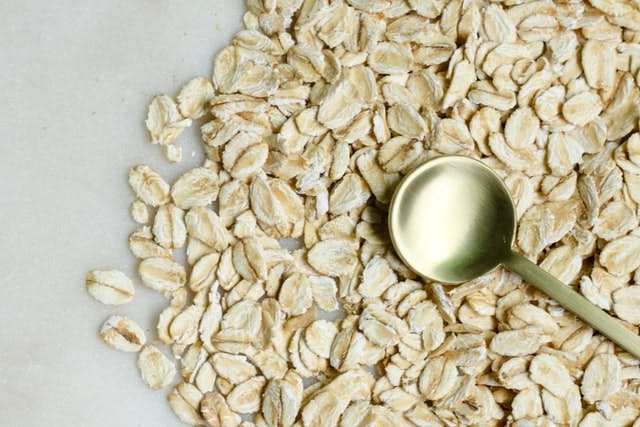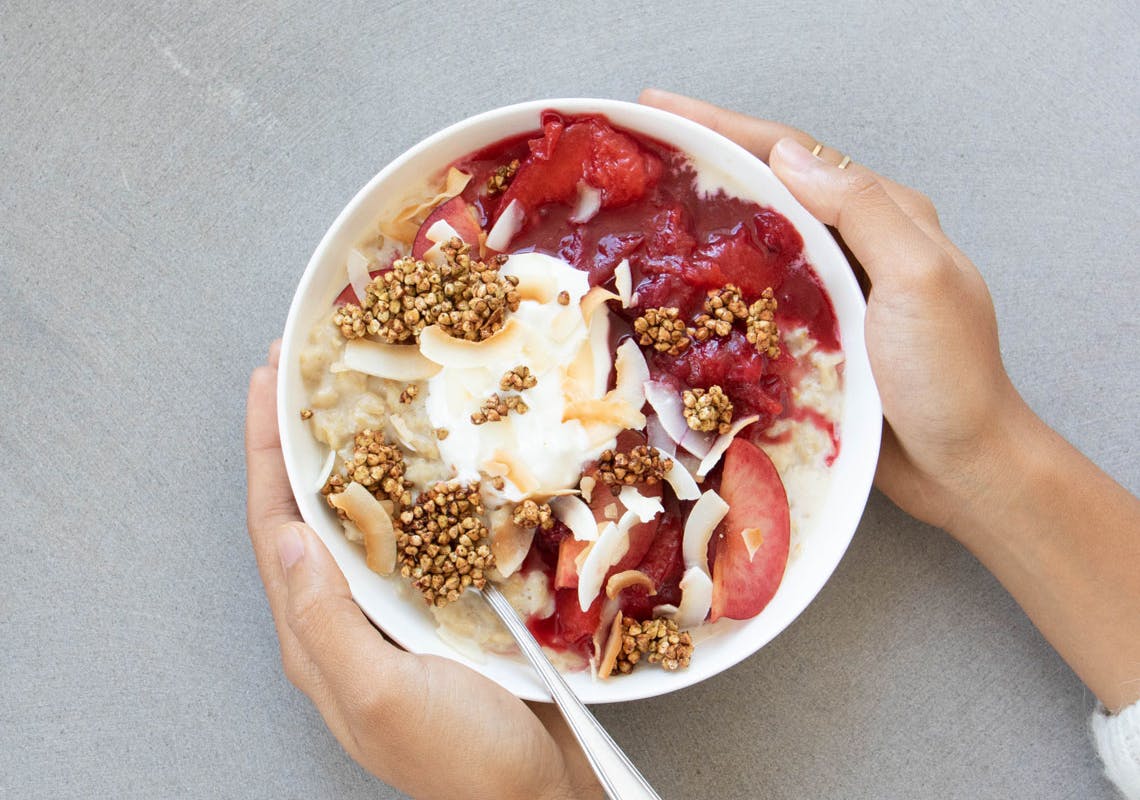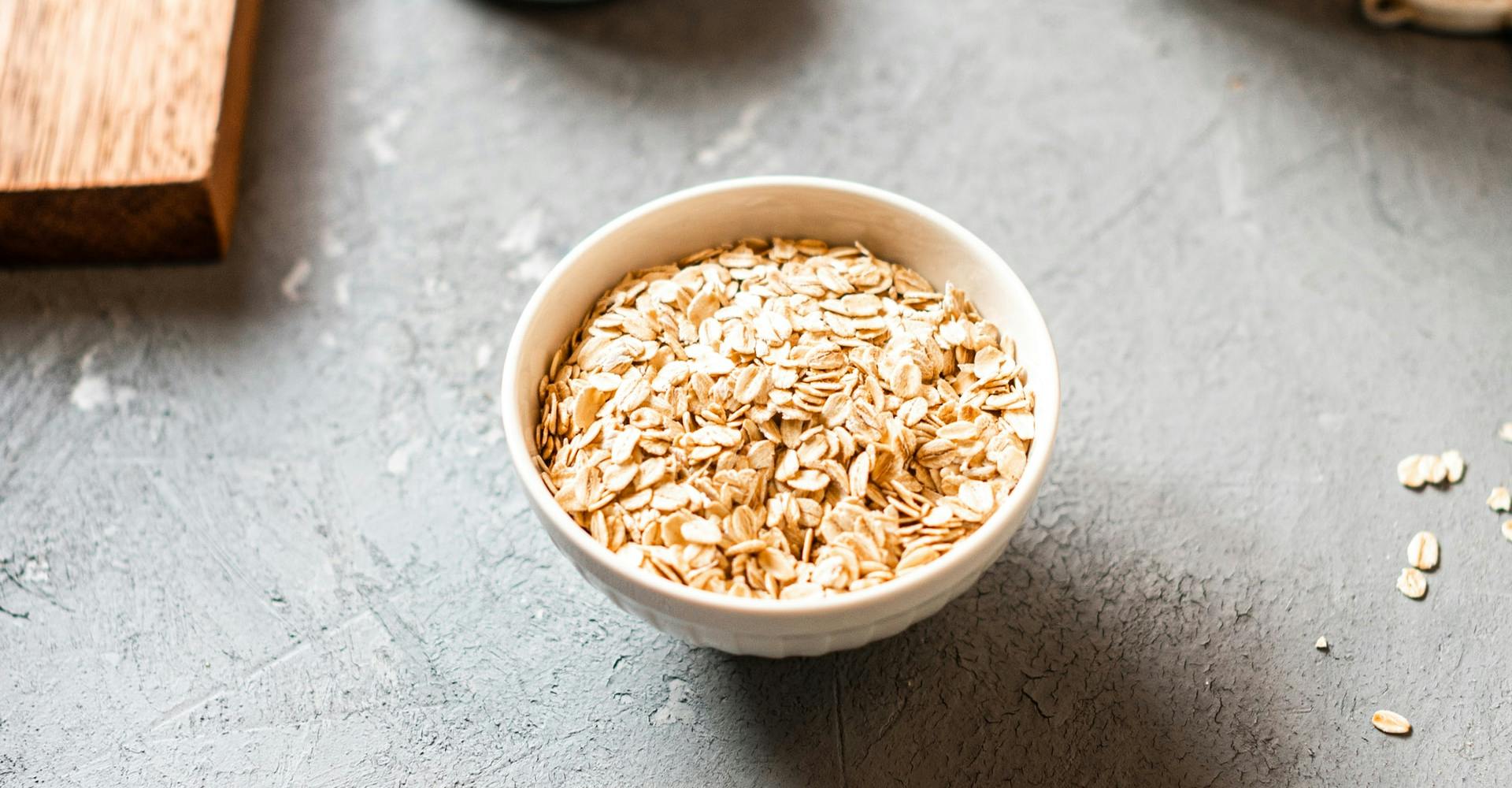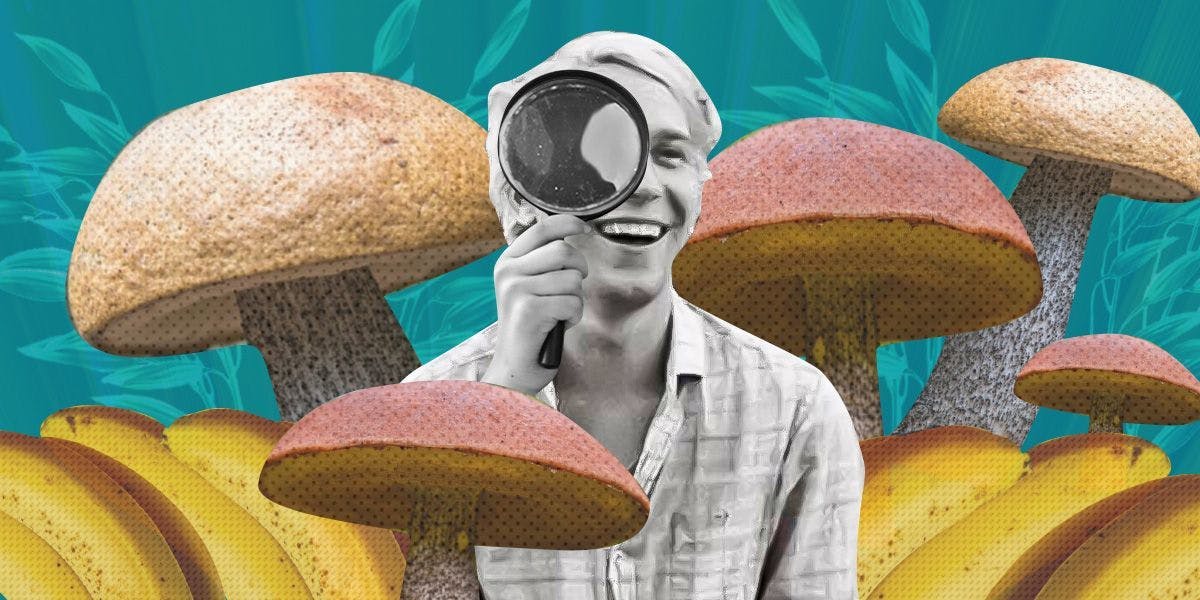Lifestyle
Power Of Plants: 5 Ways Oats Will Change The World (or your day, at least)
5min read
As far as grains go, it’s pretty easy to come across oats every day and not know much about them. We’ve taken a look into their environmental, nutritional and unexpected credentials and here are our findings.
We started this exploration knowing that oats are pretty great; not only a versatile and interesting ingredient in plant-based living, but they’re also highly beneficial for our bodies and the planet too.
1. Healthy oats

As one of the healthiest grains on the planet, oats are a naturally gluten-free whole grain that’s not only full to the brim with key vitamins, minerals and antioxidant plant compounds, but they are wonderfully versatile too.
Some of their best attributes include aiding weight loss, lowering blood sugars, lowering cholesterol and even reducing the risk of heart disease. Their nutritional composition is well balanced, with great quantities of fibre, carbs, fats and protein. Some of their top hitting vitamins and minerals include:
- Vitamin B1 and B5
- Copper
- Iron
- Folate
- Manganese
- Magnesium
- Phosphorus
- Zinc
This hearty list, combined with their low-calorie count, means you’ll be hard-pressed to find a more nutrient-dense single ingredient. Incorporating oats into a healthy, balanced diet is one change you can make today that your body will be sure to thank you for tomorrow.
2. Oats and sustainability

Oats are one of the UK’s best home-grown crops and they’ve got the planet’s best interests at heart too. According to an article from the Independent, when grown in an eco-friendly manner, without the use of pesticides and chemical fertilisers, they make a positive impact on our ecosystems.
Sustainability isn’t always the most straightforward topic, a considerable amount of balance is involved in calculating the environmental impact of anything, and agriculture is far from an exception. Growing large quantities of any mono-crop can have a serious impact on biodiversity; however, oats are a great break crop. This means that they thrive in crop rotation, as they’re able to replenish the soil between harvesting and seeding. If the crops’ stubble is left behind after harvesting, it can act as an efficient natural fertiliser when it’s ploughed back into the soil.
Growing, cooking and eating more oats might just be the key to future-proofing the UK’s food supply.
3. Oats and plant-based cooking

Oats could be described as a vegan’s best friend – or at least part of the inner circle, along with soy and nutritional yeast. As well as their impressive nutritional credentials, they’re versatile and a serve as a creative alternative to so many dairy-based products.
If you’re plant-powered, you’d most likely have been living under a rock to not know the wonders Oatly have been cooking up lately. From creme fraiche and custard to yoghurt, ice cream and five varieties of plant-milk, they’re just one example of the oat-based, vegan brand innovation going on in the world of oats right now.
Whilst oat-cheese might not big the biggest trend right now, it’s definitely a space to watch. It’s much cheaper to make than nut-based cheeses like cashew, it’s low in fat and high in soluble fibre. If it’s a cultured cheese, then it will be rich in digestion-aiding probiotics.
If we’re to look at the water footprints of the most popular plant-based ingredients when it comes to making dairy alternatives, oat is the most efficient too; far outshining almond and soy.
4. Oat-based face mask

The idea of an oat-based face mask isn’t exactly a groundbreaking concept, however, some of the best things don’t need up updating. An oatmeal face mask is deeply hydrating as well as a natural anti-inflammatory and rich in antioxidants. It’s perfect for gently exfoliating your face, healing scarring and restoring your skin’s natural hydration.
This recipe from Miss Organics it quick and easy to throw together from three breakfast staples: plant-yoghurt, blueberries and, of course, oats.
- Pulse ½ cup of rolled oats in a blender only large grains are left
- Add ¼ cup of sugar-free plant-yoghurt to your oats in the blender along with a handful of blueberries
- Pulse again until combined
- Apply the mixture to your clean, dry face and neck
- Leave on for 10-20 minutes
- Rinse thoroughly and dry your face
5. Crafty oats

Whether you’ve got little ones in need of entertaining, or you’re just looking for your next creative date-night activity, a bag of oats might just be the starting inspiration you didn’t know you were looking for.
If you haven’t heard of oatmeal clay, then buckle down for some excitement. It’s really as simple (and effective) as it sounds. It has a great texture when wet and dries incredibly hard, so perfect for immortalising your creations.
You simply mix oats with flour and water (and food colouring if you’re feeling adventurous) and the worlds of Pictionary, model making and sensory play are at your fingertips! Once it’s fully dry, you can let your creative juices flow once again with painting and decorating. Check out the full instructions at Kinder Art.
Some extra info on oats
In their most intact form, you’ll find oat groats. They’re not the fastest to cook, but this is where you’ll find the most fibre. Rolled, crushed or steel-cut oats are easier to cook, digest and get their full nutritional value from, so they’re probably your best bet for cooking.
Even though they’re the easiest to cook, avoid instant oats if you can as they’re the most processed and have the least pleasant texture when cooked – think gruel
Hungry for oats? Check out our Food Editor, Val’s recipe for creamy oasts two ways. Your breakfasts will never be the same again.
By Fabian Jackson
Fabian is one of our lovely Content Marketing Assistants who loves writing almost as much as he loves coffee, old episodes of Escape to the Country (no judgement here), and cooking up a storm in his kitchen.
Let us take care of dinner
We help to make eating more plants easy and delicious. Fancy letting us take care of dinner? Check out our delicious meals here.
Shop now
